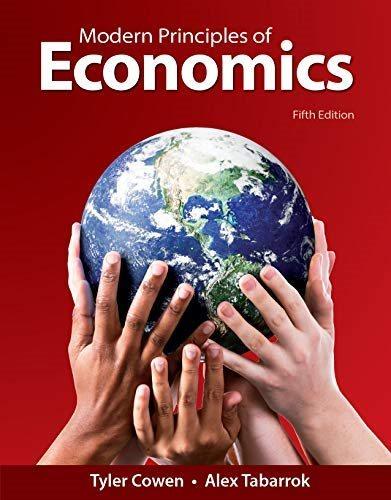When a sports team hires an expensive new player or builds a new stadium, you often hear
Question:
When a sports team hires an expensive new player or builds a new stadium, you often hear claims that ticket prices have to rise to cover the new, higher cost. Let’s see what monopoly theory says about that. It’s safe to treat these new expenses as fixed costs: something that doesn’t change if the number of customers rises or falls. You have to pay Miguel Cabrera the same salary whether people show up or not, you have to make the interest payments on the new Comerica Park whether the seats are filled or not. Treat the local sports team as a monopoly in this question, and, to keep it simple, let’s assume there is only one ticket price.
a. As long as the sports team is profitable, will a mere rise in fixed costs raise the equilibrium ticket price, lower the equilibrium ticket price, or have no effect whatsoever on the equilibrium ticket price? Why?
b. In fact, it seems common in real life for ticket prices to rise after a team raises its fixed costs by building a fancy new stadium or hiring a superstar player: In recent years, it’s happened in St. Louis and San Diego’s baseball stadiums. What’s probably shifting to make this happen? Name both curves, and state the direction of the shift.
c. So, do sports teams spend a lot of money on superstars so that they can pass along the costs to the fans? Why do they spend a lot on superstars, according to monopoly theory?
Step by Step Answer:






